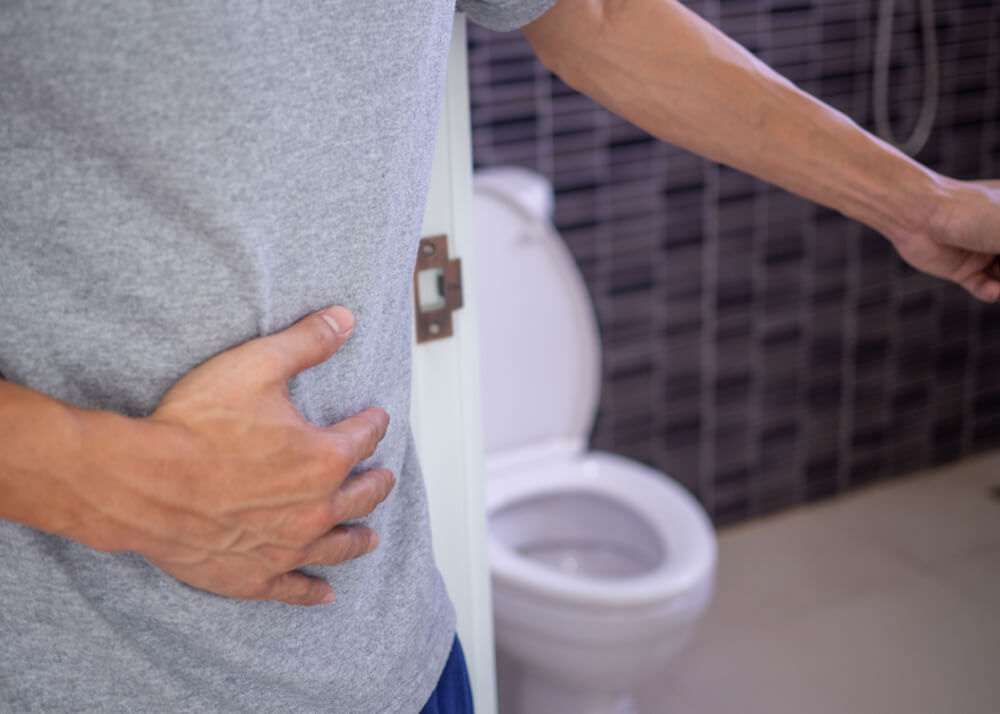The subject of bowel movement in general can be off-putting for a lot of people. However, these are matters that are absolutely crucial to your health. After all, if you aren’t able to get rid of waste from your body, you can get sick and be at risk for a lot of diseases.
Below, you’ll find some of the most common myths about constipation—also known as pagtitibi in Tagalog—and the real deal about these mistaken beliefs. This list also covers misconceptions about poop, flatulence, and other concerns relating to the digestive system.

Myth 1: You Need to Poop Everyday
Some people believe that the “normal” bowel movement frequency is at least once a day. This simply isn’t true. Depending on a variety of factors, such as the food you eat and the amount of physical activity you get every day, your bowel movement may range from daily to once every two to three days.
That being said, if you’re having fewer than three bowel movements in a week, you likely have constipation. Observe your poop carefully and your experience while sitting in the toilet. Common indicators of constipation are hard, lumpy stools and having to strain in order to release them.
Myth 2: Farting a Lot Means Something Is Wrong
Farting may be a normal part of your digestive process but it can definitely be embarrassing, especially if you accidentally do it in public. What’s worse is if you have multiple incidences of flatulence in only a couple of minutes.
What you have to keep in mind is that you aren’t technically responsible for your farts. The gas is actually produced by the bacteria that break down the food in your intestines. Some of this gas is exhaled; some of it gets released through flatulence, which can number up to 20 times a day. So farting a lot is, in fact, normal.

Myth 3: If You’re Constipated, Your Diet Needs More Fiber
One of the biggest causes of constipation is the lack of fiber in your diet, but it isn’t the only reason. For example, some medications like iron supplements or narcotic pain relievers can affect your bowel movements. Constipation can also be a symptom of certain medical conditions, like hypothyroidism and irritable bowel syndrome.
Of course, eating more dietary fiber is always good. Just keep track of your bowel movements; if they don’t improve even after including more fiber in your diet, it’s time to consult your doctor.
Myth 4: Swallowing Gum Makes You Constipated
It’s like an urban myth of your childhood days: when you swallow gum, it can make you constipated and it will stay in your stomach for years. Nothing can be more true. While you cannot digest chewing gum because of its composition, it doesn’t stick to your stomach or intestines. Rather, it moves along your digestive system and comes out along with your poop.
That said, there can be occasions when large amounts of gum can form a lump that can cause a blockage in your intestines. In addition, when you swallow gum WHILE you have constipation, it can potentially exacerbate the condition or cause a blockage. It’s children who are more susceptible to this but, to be sure, try not to swallow your gum.
Myth 5: Poop Is Supposed to Smell Bad
No one’s poop smells particularly pleasant, but poop is also not supposed to smell THAT bad. If your stool is especially foul-smelling, have yourself checked for bacterial infections and other digestive diseases. Usually, feces that smell bad can indicate parasites, Crohn’s disease, or ulcerative colitis.
Myth 6: Laxatives Create Dependency
Some people believe that once you take laxatives, you won’t be able to pass your stools anymore without them. This is patently untrue. Most of the treatments for constipation, including laxatives, don’t pose any risk of dependency. There are some options that are more suited for certain situations but overall, you can rest assured knowing that you won’t grow dependent on laxatives to pass your stools.
Myth 7: Kids Don’t Get Constipated
Here’s a medical truth: most health conditions that happen to adults can also happen to children. Sometimes, incidents can be rare but the possibility is still there. Unfortunately in the case of constipation, kids can get it quite easily.
Some of the things that can trigger constipation in children include stress, a change in their food intake, and medications. Meanwhile, some symptoms of constipation in children include larger-than-usual stools or hard stools shaped like pellets or logs. If you notice these in your child, give them more water and add fiber to their diet. In case nothing changes in the coming days, consult a doctor.
When it comes to your body, it’s best not to believe in myths, hearsay, and old wives’ tales. What you should do is do your research while at the same time being cautious about what you see online. Of course, when in doubt and can’t find any reliable source, consult your doctor to know what to do.